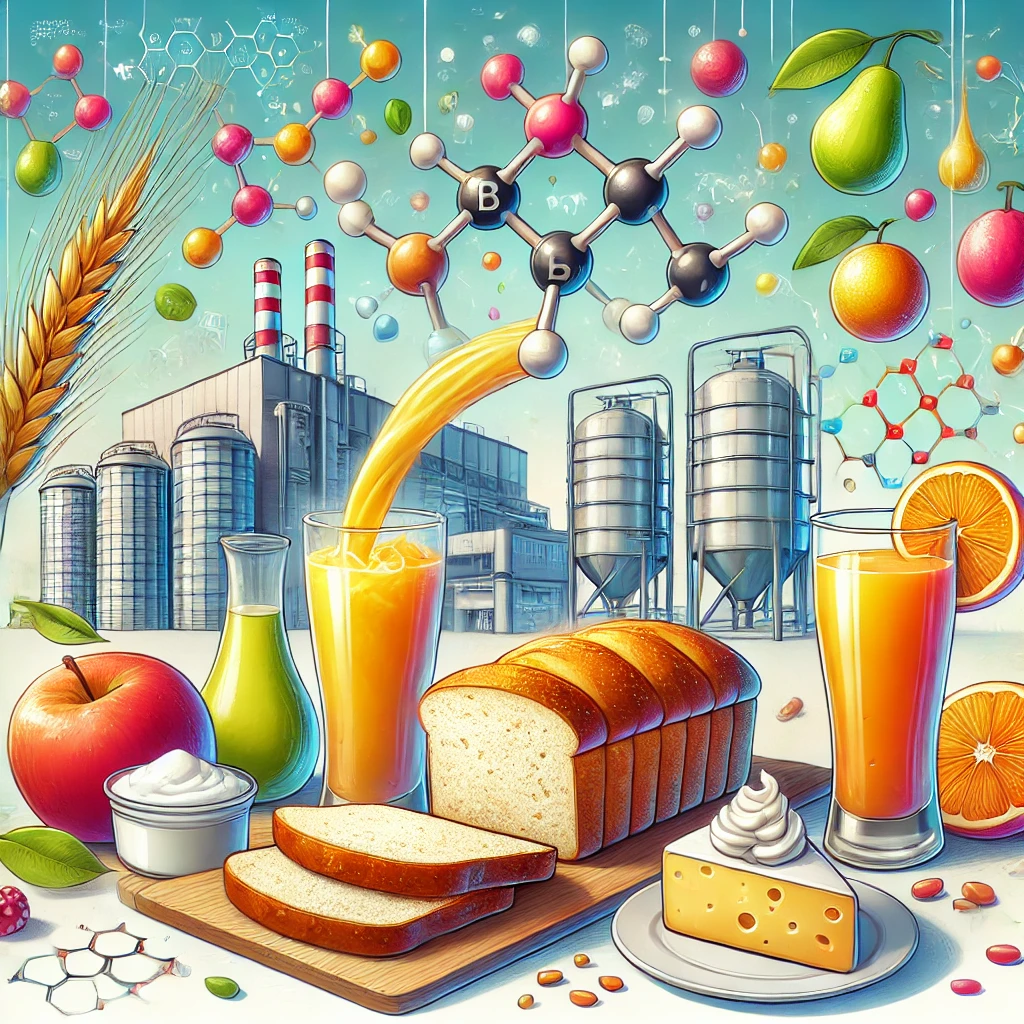The global enzymes market is expected to reach a value of USD 14.0 billion in 2024 and is forecasted to grow to USD 20.4 billion by 2029, with a compound annual growth rate (CAGR) of 7.8%. This market expansion is largely driven by the rising demand for processed foods, as evolving consumer lifestyles and preferences call for enhanced food quality, texture, and extended shelf life. Enzymes are increasingly being utilized across various sectors such as pharmaceuticals, biofuels, and textiles, further boosting their adoption and fueling market growth.

Here are some key trends in the enzymes market:
- Rising Demand in Food & Beverage Industry: Enzymes are increasingly used in the production of processed foods to improve texture, flavor, and shelf life. This trend is driven by the growing consumption of convenience foods.
- Shift Toward Sustainability: Enzymes offer eco-friendly solutions by reducing the need for harsh chemicals in industrial processes, especially in textiles, paper, and detergents, aligning with global sustainability goals.
- Growth in Biofuels: With the increased focus on renewable energy, enzymes play a crucial role in biofuel production by enhancing the efficiency of starch conversion, which is propelling demand in this segment.
- Expansion in Healthcare Applications: Enzymes are widely used in pharmaceuticals, diagnostics, and biotechnology. Enzyme-based therapies and diagnostics are seeing substantial growth due to advancements in personalized medicine and genetic research.
- Technological Advancements in Enzyme Engineering: Innovations in enzyme engineering and recombinant DNA technology are leading to more efficient, cost-effective enzyme production. This enhances performance across diverse applications, boosting adoption.
- Increased Adoption in Animal Feed: Enzymes are widely used in animal feed to improve nutrient absorption, which leads to better livestock health and reduced environmental impact. As the demand for high-quality animal protein rises, the use of feed enzymes is expanding.
- Growing Focus on Clean Label Products: Consumers are increasingly seeking clean-label and natural products, which is pushing manufacturers to use enzyme-based processing in various food and beverage products instead of synthetic additives.
Enzymes Market Drivers: Growing environmental concerns and increasing demand for biofuel
The depletion of non-renewable resources has heightened the need for manufacturing biofuels, which have minimal environmental impact. In countries with surplus agricultural capacity, ethanol derived from biomass presents a viable alternative to traditional motor fuels like gasoline, diesel, and kerosene. This ethanol can serve as a substitute, extender, or octane booster. Biofuels are produced from agricultural waste materials such as corn stalks, leaves, sugarcane bagasse, sugar beet, sorghum stalks, wheat, barley, rye, and by-products from industries like cheese-making and potato processing. Biofuels offer a significant advantage by replacing toxic oxygenates in petroleum fuels, thus contributing to pollution reduction. The growing demand for biofuels has led to increased usage of enzymes, including amylases, lipases, cellulase, and proteases, which are essential in the biofuel production process. Among these, amylase enzymes are expected to dominate the biofuel enzymes market due to their robust performance across a wide range of temperatures and pH levels.
Key players in this market include BASF SE (Germany), International Flavors & Fragrances Inc. (US), dsm-firmenich (Switzerland), Associated British Foods plc (England), Novozymes A/S (Denmark), Kerry Group plc. (Ireland), Dyadic International Inc. (US), Advanced Enzyme Technologies (India), Aumgene Biosciences (India), Amano Enzyme Inc. (Japan), F. Hoffmann-La Roche Ltd (Switzerland), Codexis, Inc. (US), Sanofi (France), Merck KGaA (Germany), Adisseo (China)
Novozymes A/S (Denmark) is a major bio-innovation company which is providing biological solutions like enzymes and microbes. The company caters to 5 business segments Household Care, Food, Beverages & Human Health, Bioenergy, Agriculture, Animal Health & Nutrition, and Grain & Tech Processing. The company offers enzymes through all its business segments. The company has been involved in partnerships with leading distributors in the North American region to increase the consumer reach of their products. In September 2023, Novozymes A/S launched Vertera ProBite, an innovation utilizing the enzyme MTGase, designed to improve the texture of plant-based products. In July 2023, the company expanded its existing plant in Kuala Lumpur, Malaysia. The center, part of the South-East Asia hub, supports customers in China, India, Japan, Korea, and Australia, while exploring emerging applications like MCT, FFAR, and hydrolysis in its laboratories.
BASF SE (Germany) is the world’s leading chemical company that produces a wide range of products. The company specializes in the chemical industry and ranks among the world’s largest chemical producers. It operates through 11 divisions, which are organized into six segments: Chemicals, Materials, Industry Solutions, Surface Technologies, Nutrition & Care, Agriculture Solutions, and Others. Enzyme products fall within the categorization of the Nutrition & Care and Chemicals segment. In December 2021, the company launched Natupulse TS, an NSP enzyme for animal feed that hydrolyzes ß-mannans into manno-oligosaccharides (MOS). As an endo-1,4-ß-D-mannanase, it reduces digesta viscosity and enhances feed digestibility. In March 2023, BASF SE (Germany) and Cargill (US) expanded their partnership to South Korea, marking their first Asian market. This collaboration introduces Enzae Manno (Cargill), made with Natupulse TS, to South Korean animal protein producers, combining BASF’s enzyme R&D strengths with Cargill’s market reach. This partnership aims to enhance productivity, sustainability, and cost-efficiency in animal feed. By extending its geographic reach and launching innovative enzyme solutions, BASF SE strengthens its global presence and market leadership in animal nutrition.
Enzymes Industry Recent Developments:
In January 2024, Novozymes and Chr. Hansen has completed their merger, resulting in the establishment of Novonesis. As a bio solutions partner, Novonesis aims to enhance business, promote healthier lives, and support a healthier planet. The combined expertise of the company spans over 30 different industries.
In December 2023, IFF and Kemira (Finland) are collaborating to commercialize renewable polymers from IFF’s Designed Enzymatic Biomaterials (DEB) technology, integrating production into Chemigate Ltd’s biorefinery in Finland by mid-2024. This innovation addresses the demand for sustainable alternatives in pulp, paper, water treatment, and other markets. By expanding DEB technology, IFF will offer high-performance, sustainable materials, enhancing its enzyme industry presence and supporting a circular bioeconomy.
